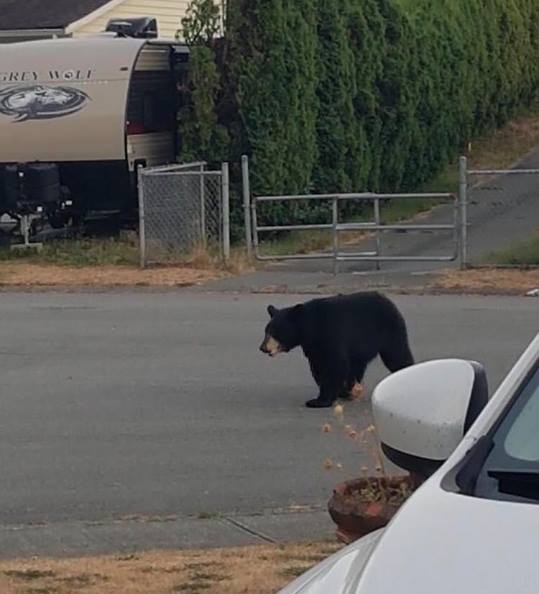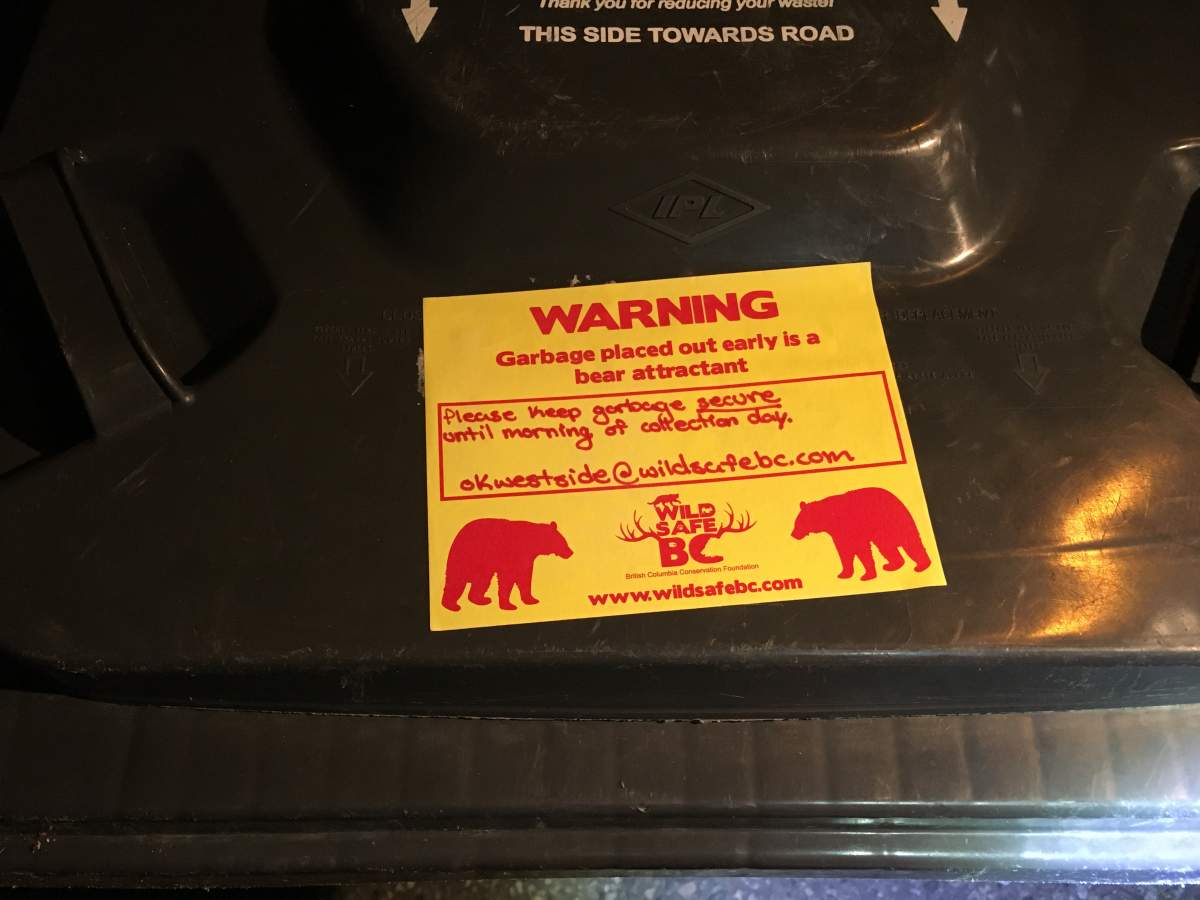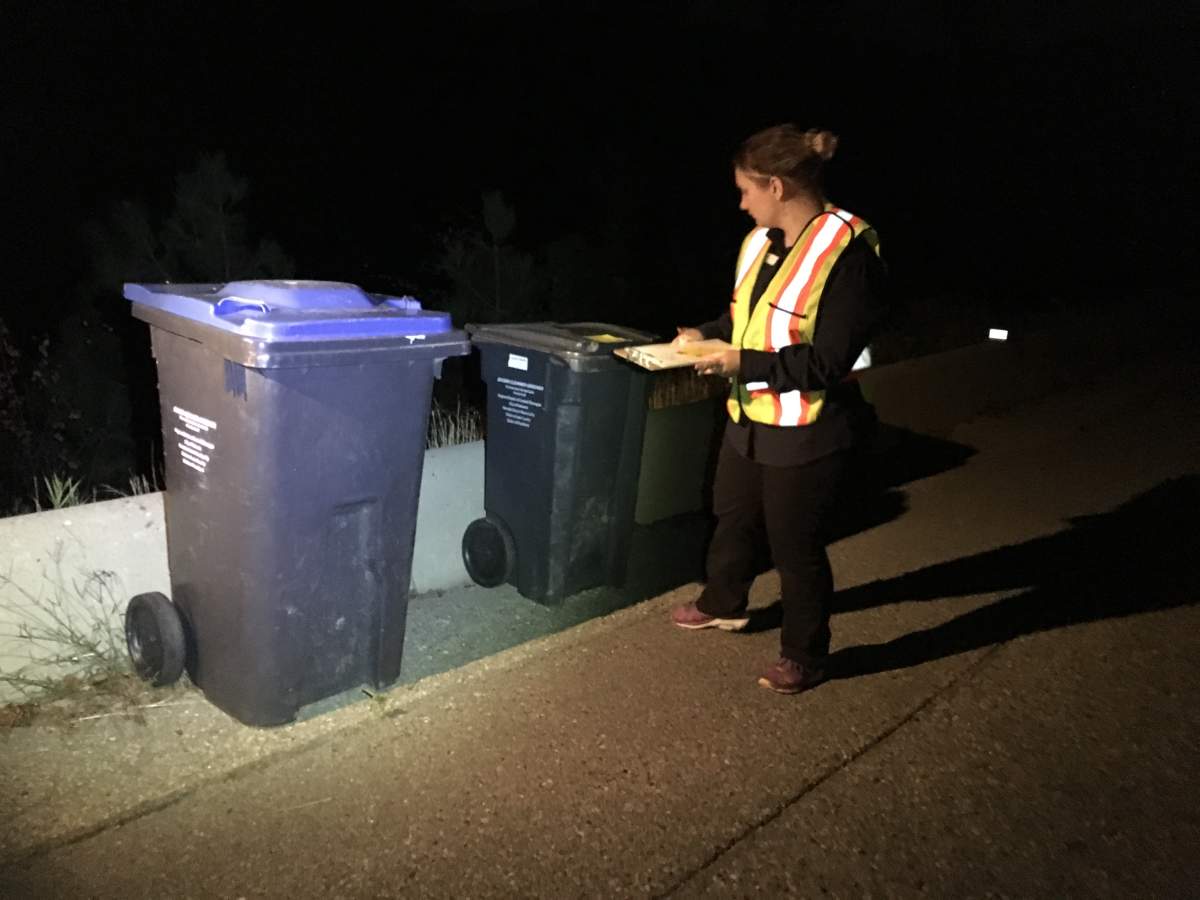It’s a time of year when bears are extremely active foraging for food, and a lot of it.

“Bears are in what we call hyperphagia, which is a period of intense eating, as they build up fat stores to prepare for winter denning,” WildSafeBC coordinator Meg Bjordal told Global News.
September marks the start of the hyperphagia period, which sees bears consume up to 20,000 calories a day.

With a spike in bear sightings at this time of year, Bjordal said Okanagan residents need to be bear aware starting with being responsible with their garbage.
“Garbage is the No. 1 bear attractant,” Bjordal said. “Bears have a really strong sense of smell; they can smell garbage for up to a kilometre away.”

With that in mind, Bjordal has been making nightly rounds in Central Okanagan neighborhoods, tagging garbage bins with stickers that have been left out the night before garbage pick-up.
She said the stickers are a friendly reminder that garbage bins are wildlife attractants and should be put out on the morning of garbage collection.
On Tuesday night, Bjordal was in Peachland, where she tagged nearly two dozen garbage bins left out on the eve of garbage day in just an hour and a half.
“Despite continued messaging around garbage being a bear attractant, we do continue to see year after year, garbage placed out early. So that’s why we use garbage tagging as a tool, a friendly reminder, essentially to remind residents that garbage is an attractant,” Bjordal said.

Get breaking National news
Bjordal said the reminder is important every year as some residents are unaware about the potential dangers, while others may forget.
“We have new people moving into the community and because bears go to sleep over the winter, and so there is this period of time when we are not necessarily thinking about bear attractants and can fall into bad habits,” Bjordal said.
But the repeated messaging may slowly be getting through, as bear complaint calls in the Okanagan are down this year.
According to B.C.’s Conservation Officer Service, between Sept. 1 and Sept. 25, there were 73 bear complaints across the valley.
That compares to 224 in the same time period in 2017 and 406 in 2016.
“Calls were down substantially this year for the Okanagan similar to what we have seen for other areas of the province,” wildlife conflict manager Mike Badry said in an email to Global News. “This is likely due, in large part, to abundant natural food availability for bears, but also in part to public awareness and non-natural attractant management (garbage, fruit, etc.) that some of the communities have implemented.”
Despite the decrease in bear complaints, experts say it’s important to continue reminding residents about being bear aware.
“Every resident has a personal responsibility to manage the attractants around their home,” Bjordal said. “It just takes one garbage cart that is left out that a bear has easy access to, to create the start of a conflict where the bear then continues to come back to that neighborhood.”


_848x480_1397405763961.jpg?h=article-hero-560-keepratio&w=article-hero-small-keepratio&crop=1&quality=70&strip=all)





Comments